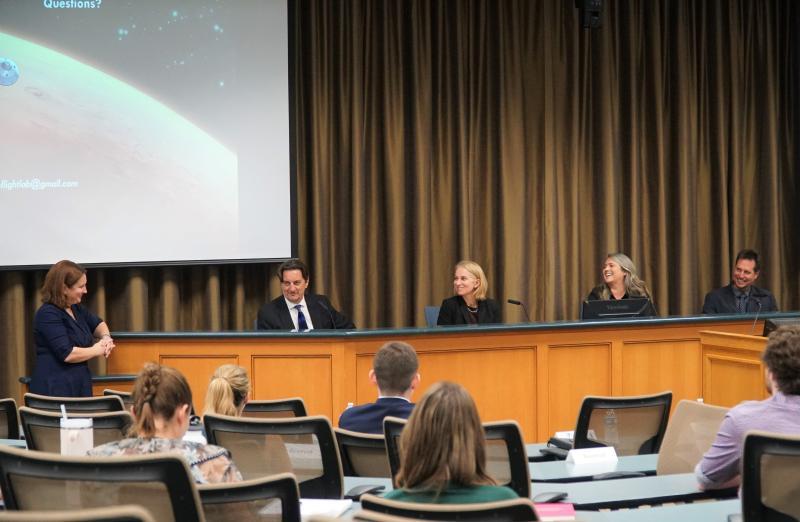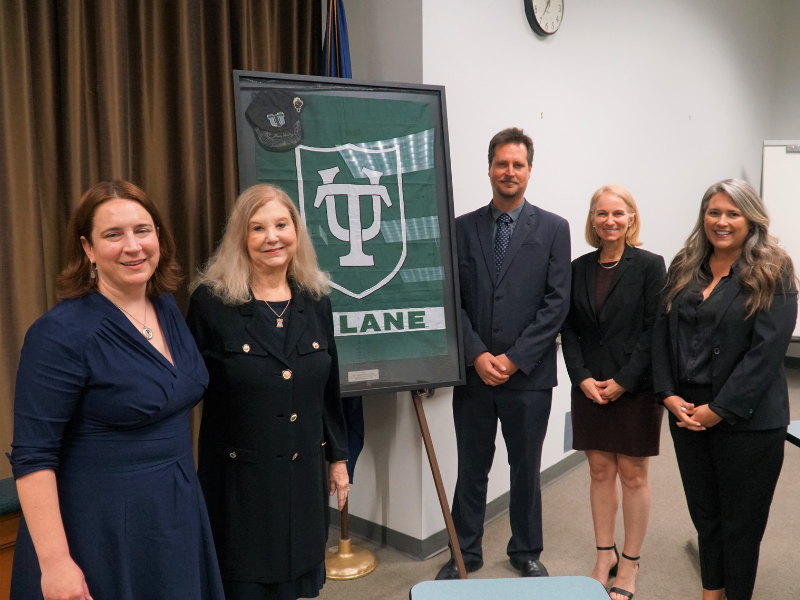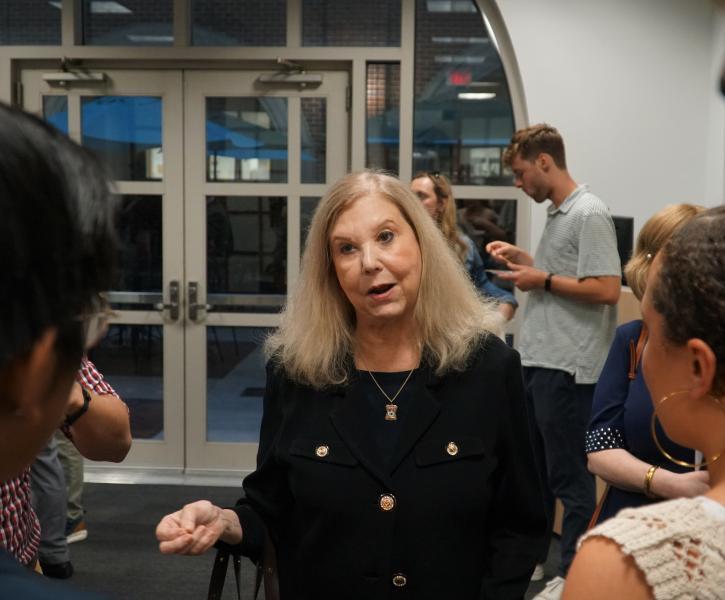Space Law Program has big future, panelists, alumni say
Some of the best jobs in the future of law are those that will be generated in the fledgling space law industry, Tulane Law alumna and donor Darleen Jacobs told students.
Jacobs spoke briefly at the official launch of the Tulane Space Law Program, an event marked by discussions with key experts of likely legal challenges to come from everything from property rights to environmental damage.
“I see a great futured for all of you,” Jacobs (L’81) told students. “One way or the other, there is a future in space law for lawyers. And I am so proud to be here and to see that there is so much interest by Tulane students.”
The growing Space Law Program’s launch event – which included a Tulane flag and baseball cap that went into space with Tulane alumnus ret. Col. Doug Hurley (E’88) – was capped off by a panel discussion with event speakers, including two who are teaching two new courses in space law:
- Professor Jeanne Amy (L’16), trial attorney for the Department of Justice’s Aviation, Space & Admiralty Litigation section, and an instructor in the Tulane Space Law Program spoke about the existing laws that govern space, and the reality that an avalanche of litigation is expected in coming years over liability, torts and environmental issues.
- Professor Wian Erlank, a space law and property law expert from the North-West University in South Africa, and also an instructor in the Tulane program, spoke about the likelihood of international disputes that will come over time as more nations explore space. He raised the alarm of rogue nations creating a kind of wild, wild west in outer space.
- Dr. Danielle Carroll, President of the Space Surgery Association and former NASA Fellow, and the founder of Orbital Biodesign, LLC., a company that helps in the development of innovative technologies intended to support human health, both on Earth and in space. Carroll spoke about policy ethical dilemmas that humanity will face with space travel, including issues of equity and access to health.
- Professor Martin Davies, Director of the Tulane Maritime Law Center, discussed the connections between maritime law and space law and how already the law of the sea is being applied to some disputes in outer space.
“We are so excited to showcase how Tulane is becoming a leader in space law. What makes Tulane so well-situated in this burgeoning area is our second-to-note expertise in admiralty law, international law, and comparative law,” said Interim Dean Sally Richardson who moderated the event. “Space is the next great commons and, much like the high seas, the law will turn to how all nations work in a global context to manage and regulate other commons to determine how space is governed in the future.”
Tulane’s Space Law Program was created with the generous gift of $1 million from Jacobs (L’81) in 2022, who established the Judge S. Sanford Levy and Judge Anna Veters Levy Endowed Fund to be used exclusively to develop the program at Tulane.
Space law is primarily governed by the domestic and international laws that determine the use and exploration of outer space and is anchored in legal frameworks drawn from maritime law and the law of the sea. Tulane’s global leadership in these fields, as well as in international law and environmental law, position it uniquely to contribute to the study and development of space law.
The development of the program took flight this fall with two courses, one taught Professor Amy (L’16), a trial attorney for the Department of Justice’s Aviation, Space & Admiralty Litigation section and a second one taught by Professor Erlank, a space law and property law expert from the North-West University in South Africa.
Amy’s course is titled “Space Law: Jurisdiction and International Treaties,” which focuses on the five central space law treaties and examines the framework for how to answer questions of jurisdictional authority in outer space. Her first class last spring was so popular, it hosted a whopping 60 students.
Erlank’s course,” Space Law: Property, Tort, and the Environment,” builds on Amy’s course by exploring three interrelated areas impacting the future of space law: delict (tort), property, and the environment. In Erlank’s course, taking place now, students are learning about how tort law principles will apply in space when injuries occur, as well as how property rights apply in space with regards to both existing man-made objects, like satellites and spacecraft, as well as celestial bodies.

from attendees at the Space Law Launch event.


